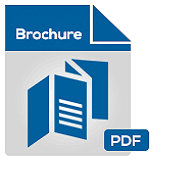
Biography
Biography: Bertrand Tehard
Abstract
In France, the main objective of economic evaluation of health technologies is to estimate an Incremental Cost-Outcome Ratio (ICER). The CEESP (Economic & Public Health Assessment Commission) provides an economic opinion on its credibility. The ICER is considered credible in the absence of a major reservation or major uncertainty. A validated ICER is expected to provide economically relevant information for the price negotiation with CEPS (French Pricing Committee).
Using Vyoo Agency efficiency database, all available validated Health Economic appraisal published between January 1 and until December 31, 2022, were reviewed to analyze the levels of ICERs.
In 2022, the CEESP validated the results of 12 health economic assessments out of 27 disclosed opinions. Nine of these opinions concern cancer treatments and 3 onco-hematology. For one assessment, the evaluated treatment is dominated. It is cost-effective compared to all others with an average ICER of €189,543.17/QALY. The levels of ICER vary widely: 2 ICERs are below €50,000/QALY, 3 between €50,000 and €15000/QALY, 3 between €150,000 and €250,000 and 2 above €250,000/QALY. ICERs range is wider in onco-hematology with ICERs between €7,392/QALY and €545,599/QALY as compared to that reported in oncology with ICERs between €49,572 and €250,086/QALY.
These levels of ICER are high compared to those accepted abroad, notably the UK. This is partly explained by the methodological requirements. The CEESP’s commitment to explore and control uncertainty leads to select conservative hypotheses to prevent any risk of underestimating the ICER. This trend does not fit well with the threshold of €0/QALY (which corresponds to the dominance); currently the only official one accepted by the CEPS to influence and speed up the price negotiations. Defining a reference value for qualifying the estimated ICER appears to be necessary to provide concrete information that can be used in price negotiations between Pharma Companies and the CEPS.

